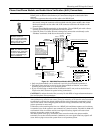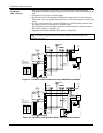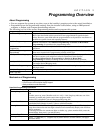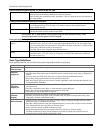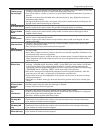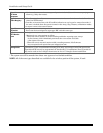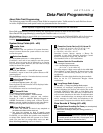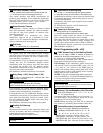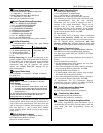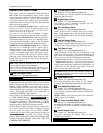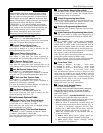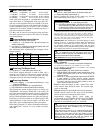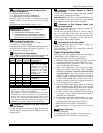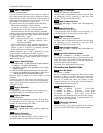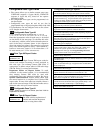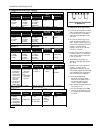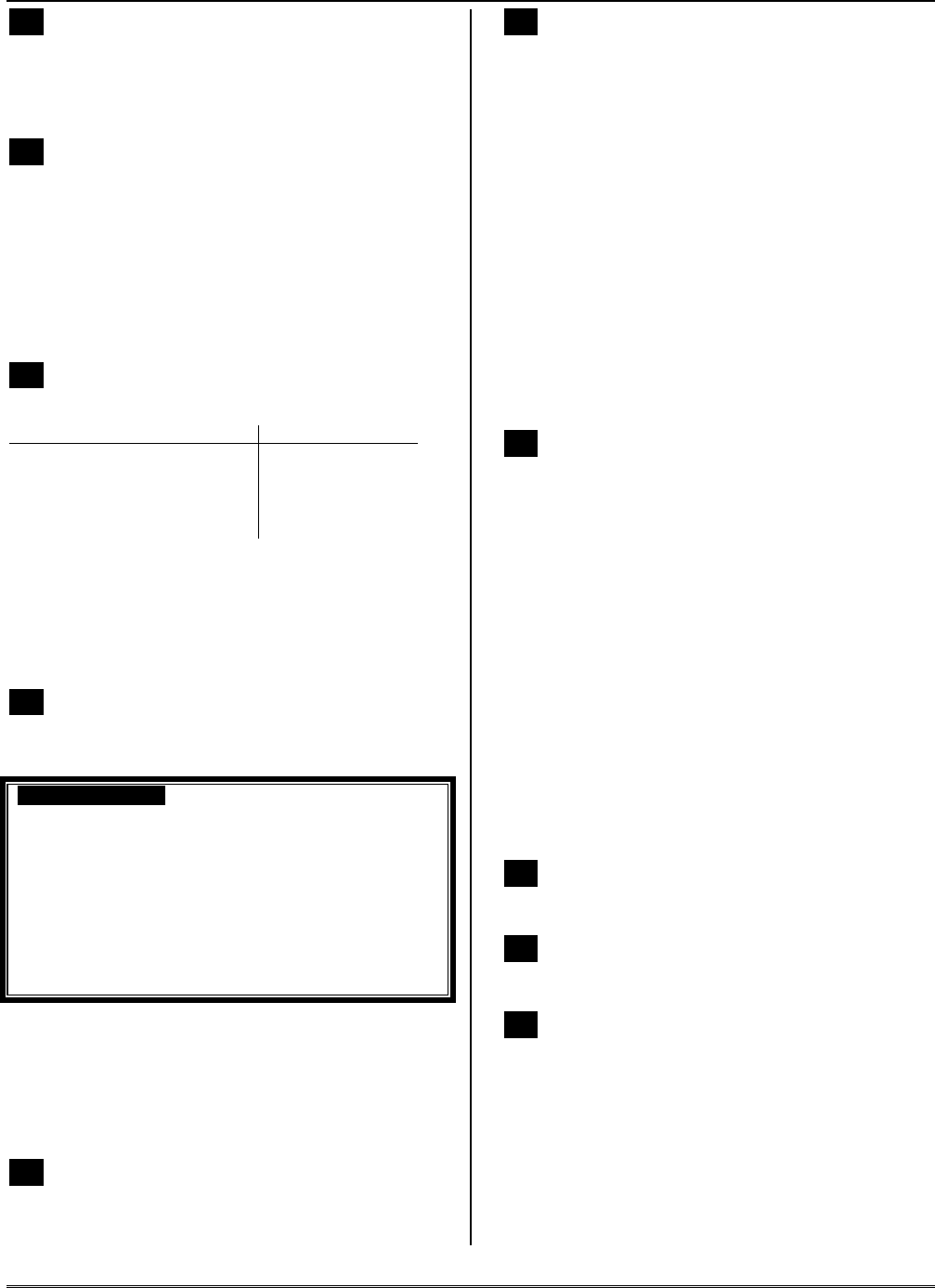
*47
Phone System Select
If Central Station Receiver is not on WATS line:
0 = Pulse Dial; 1 = Tone Dial
If Central Station Receiver is on WATS line:
2 = Pulse Dial; 3 = Tone Dial
Select the type of telephone service.
*48
Report Format (Primary/Secondary)
0 = 3+1, 4+1 ADEMCO L/S STANDARD
1 = 3+1, 4+1 RADIONICS STANDARD
2 = 4+2 ADEMCO L/S STANDARD
3 = 4+2 RADIONICS STANDARD
5 = ADEMCO 10-digit Contact ID®
6 = 4+2 ADEMCO EXPRESS
7 = ADEMCO 4-digit Contact ID®
8 = 3+1, 4+1 ADEMCO L/S EXP.
9 = 3+1, 4+1 RADIONICS EXP.
Select format for primary/secondary phone numbers.
*49
Split/Dual Reporting
0 = standard/backup reporting only (see Backup
Reporting below)
To Primary No. To Secondary No.
1 = alarms, restore, cancel others
2 = all except open/close, test open/close, test
3 = alarms, restore, cancel all
4 = all except open/close, test all
5 = all all
Backup Reporting: All reports are sent only to the
primary number unless unsuccessful after 8 attempts.
If unsuccessful, the system will make up to8 attempts
to send all reports to the secondary number. If still
unsuccessful after the 16 attempts, the system
displays the “COMM. FAILURE” message (FC for
fixed-word displays).
*50
Burglary Dialer Delay
0 = no dial delay; 1 = 15 secs; 2 = 30 secs; 3 = 45 secs
UL: must be 0.
SIA Guidelines: delay must be minimum 30 seconds
V20PSIA/V15PSIA:
Delay Time: 1 = 15 secs; 2 = 30 secs; 3 = 45 secs
Delay Disable:
0 = use delay set in entry 1
1 = dial delay disabled for zones listed in zone list 6
(use zone list 6 to enter those zones that require
dial delay to be disabled; these zones ignore the
setting in entry 1)
UL: Dial delay plus entry delay must not exceed one
minute; use zone list 6 to disable dial delay from
appropriate zones, if necessary.
Provides delay of “BURGLARY ALARM” report to the
central station, which allows time for the subscriber to
avoid a false alarm transmission. This delay does not
apply to zone type 24 alarms (silent burglary) or to 24-
hour zone types 6, 7, and 8 (silent panic, audible
alarm, auxiliary alarm), which are always sent as soon
as they occur.
*53
SESCOA/Radionics Select
0 = Radionics (0-9, B-F); 1 = SESCOA (0-9 only)
Select SESCOA or Radionics format.
Select 0 for all other formats.
*54
Dynamic Signaling Delay
0 = disabled (both signals sent);
1–15 = entry times a 15-second delay.
e.g., 1 = 15 seconds, 2 = 30 seconds, etc.
Intended for use with Long Range Radio reporting.
This field lets you select the time the panel should wait
for acknowledgment from the first reporting
destination (see ∗55) before it attempts to send a
message to the second destination. Delays can be
selected from 0 to 225 seconds, in 15-second
increments. This delay is per message. If 0 is entered
in this field, the control panel will send redundant
reports to both Primary Dialer and LRR.
UL Installations:
For Fire Alarm and UL Burglar Alarm installations
without Line Security (Grade A), the maximum
Dynamic Signaling Delay must be no more than 15 secs.
For UL Burglar Alarm installations with Line
Security (Grade AA), Dynamic Signaling Delay must
be 0. Reports will be sent to both the dialer and the LRR.
*55
Dynamic Signaling Priority
0 = Primary dialer first; 1 = Long Range Radio (LRR) first.
Intended for use with Long Range Radio reporting.
You must also enable field ∗29, OUTPUT TO LONG
RANGE RADIO.
Select the initial reporting destination for messages as
follows:
Primary Dialer First selected (0):
• If acknowledged before delay expires (see ∗54), then
message will not be sent to LRR.
• If not acknowledged before delay expires, message is
sent to both the Primary Phone No. and LRR.
Long Range Radio First selected (1):
• If acknowledged before delay expires, then message
will not be sent to the primary dialer.
• If not acknowledged before delay expires, message is
sent to both the Primary Phone No. and LRR.
UL Installations: For UL Commercial Burglary
installations that use a DACT and LRR, the DACT
must be programmed for priority (option 0).
*56
Zone Programming Menu Mode
For programming zone information.
See Zone Programming section for procedures.
*57
Function Key Menu Mode
For programming keypad function keys.
See Function Key section for procedures.
*58
Expert Zone Programming Menu Mode
For quickly programming zone information, but is
recommended only for those already familiar with *56
menu mode. See Zone Programming section for
procedures.
Data Field Programming
4-3



